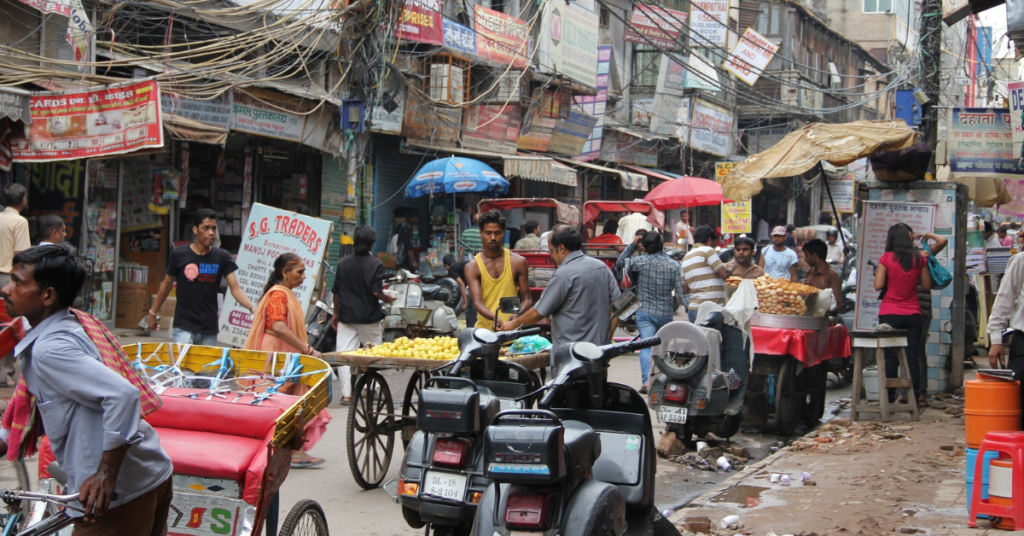3 min read
Three current trends within the Indian landscape today—growing inequality , increasing constraints on foreign funding for civil society organisations , and the promising potential for growth in Indian social sector funding , underline the moment of reckoning for big Indian philanthropy. If philanthropists in India can boldly address the deepest fractures in our society today, such as the systemic barriers and violations in right to housing, livelihoods, children and youth rights, climate justice and governance challenges, we will be able to envision a brighter future for all.
This, however, will not be an easy task. It will require confronting internal biases, negotiating power relations and risks. Yet, it is a pivotal and critical role to address some of our darkest challenges. How philanthropy responds to the rights discourse will be key in shaping the development landscape ahead.
Lately, big Indian philanthropy is reshaping and re-evaluating where and how it gives. There have been reflections on how philanthropy can move from supporting a project to supporting their purpose. Within this context it is crucial to study the enablers and limitations between big Indian philanthropy and its support for rights and advocacy led by non-profits. Rights and advocacy are central to shifting the discourse on exclusion and injustice. Yet, it has also been among the most underfunded areas, even from Indian philanthropists committed to social justice. Being deeply aware of grassroots deprivations and systemic barriers, as well as policy gaps and public administration failures, non-profits and social purpose organisations play a crucial facilitatory and field-building role in developing people’s rights and advocacy-based work, including campaigns. Philanthropic support of such rights and advocacy initiatives will ensure ground-up development and will drive participation and accountability from grant makers on outcomes. This will help India collectively own and address some of its most pressing issues.
The Faces of Climate Resilience Initiative, by the Council on Energy, Environment and Water and anchored by India Climate Collaborative and the Edelgive Foundation is just one example of how philanthropy can respond to urgent social needs from the bottom up. As a keynote speaker at the event, YUVA , a Mumbai-based non-profit underlined why social equity is critical in climate justice conversations and how the climate agenda cannot be divorced from the city’s interrelated rights discourse, but needs to be studied within the urban landscape. This is just one example of how philanthropy can enable conversations on social inequities and injustices.
When discussing partnerships and support for the rights-based framework, it’s important to highlight why corporate social responsibility (CSR) initiatives may fall short on this front. Given its short project cycles and a rigorous focus on outcomes that can be quickly measured, most CSR mandates haven’t been able to respond to the complex rights needs of marginalised communities. The commitment to realising the rights framework requires patient investment in people’s capacity building and rights awareness. It requires the nurturing of safe spaces which help people collectivise and advocate for systemic change. Such interventions need to be backed by long-term funding, flexible grant cycles, adaptability to emerging needs, and the support to learn from failure. Many of India’s leading philanthropic entities, including Azim Premji Philanthropic Initiatives , EdelGive Foundation , Rohini Nilekani Philanthropies , among others, have been able to offer this critical support through adequately designed projects. Yet, many of them are outliers in their bold championing of systemic shift initiatives. It remains to be seen whether such support systems find resonance and uptake while the larger private philanthropic system.
Alongside its growth, Indian philanthropy has been studied more closely in recent years. New knowledge on philanthropy is focused on shifting donor-centric practices, developing the agency and capacity of those whom the projects seek to benefit, and enabling an equity lens to measure outcomes. For instance, are outcomes that matter being measured? Are communities meaningfully engaged in the design of outcomes? A recent Bridgespan article delves on this deeper, presenting a range of thoughtful questions to encourage organisations to embed the practice of an equity lens for monitoring and evaluation. The Global Fund for Children’s Map of Resources to Reimagine Philanthropy and Global Development also posits the radical possibilities of giving (such as Community Centric Fundraising, Activist Philanthropy, People Power, Participation, Wellbeing and Collective Care, among many others). How big Indian philanthropy responds to these shifts, to support the rights and advocacy needs of millions in the country, will offer a critical direction for the road ahead.


















